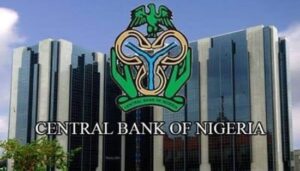
By Odunewu Olusegun
The retention of banking sector’s mandatory Cash Reserve Ratio (CRR) at 27.5% means banks will continue to be left with less funds to the tune of 27.5%, as the amount available for disbursement in the form of loans, National Daily has gathered.
The decision of the CBN’s Monetary Policy Council on Thursday to reduce the Monetary Policy Rate (MPR) from 13.50% to 12.50%, while retaining CRR at 27.5%, Liquidity ratio at 30%, signals the continued withdrawal of money in circulation, and banks in the country would be the most affected.
CRR is a mandatory part of bank’s total deposit, expressed in percentage, which a bank must maintain with the apex bank at all times and subject to change at the discretion of the regulator.
While reading the communique at the end of the MPC meeting on Thursday, Governor of the CBN, Godwin Emefiele, said the decision of the MPC to reduce the Monetary Policy Rate was informed by the impact of the Covid-19 pandemic on the economy, increased inflationary pressure, restrictions in international trade and more.
He highlighted the decline in the nation’s GDP as well as the decline in the manufacturing and non-manufacturing purchasing index which were attributable to slower growth in production, rate of unemployment, amongst others.
The MPR measures the benchmark lending rate while the CRR is a metric for deciding the minimum portion of the total deposits of customers, held by commercial banks as reserves (cash or deposits) with the Central Bank.
The liquidity ratio is a financial metric for weighing a bank’s ability to pay off its short term debt obligations.
It would be recalled that at its first meeting in January, 2020 the Monetary Policy Committee (MPC) of the Central Bank of Nigeria (CBN) raised the Cash Reserve Ratio by 5% to 27.5%. The move shocked bankers who had expected the CBN to taper down on its tight monetary policies considering the economic headwinds.
The CBN had attributed the reason for the increase to raise the CRR is informed by recent inflationary pressure in the economy.
In the communique released by the CBN, the MPC stated that the persistent increase in the inflation rate, which stood at 11.98% in December 2019 is a source of concern. Hence, the committee disclosed that inflation above 12% is inimical to output growth in the Nigerian economy.
Emefiele, while unveiling the apex bank’s position for 2020 earlier at the Bankers Dinner, organized by the Chartered Institute of Bankers of Nigeria, in Lagos, disclosed that CBN would maintain a cautious approach and defend the naira, to avoid reversal of gains.
Thereafter, most leading banks in the country were penalized for failing to meet the CRR target. From the list of debits suffered by banks, Zenith Bank ranked the highest with about N355.9 billion while FBNH and UBA came second and third with N208 billion and N204 billion respectively.
However, according to the statistics released by the National Bureau of Statistics in April, month on month, inflation rose by 12.26% in March 2020, higher than the rate (12.20%) recorded in February and 12.13% in January.
The Naira official exchange rate has also been devalued from the official N307 to Dollar in December to N360/$ in April, while it goes for as much as N460/$ at the parallel market.
You may be interested

2024 CHANQ: History Not Kind To Us Against Ghana –Ogunmodede
Webby - December 24, 2024Home-based Super Eagles coach Daniel Ogunmodede says history has not been good to Nigeria when they face rivals Ghana.The home-based…

Ex-Chelsea Star Oscar Returns To Boyhood Club Sao Paulo
Webby - December 24, 2024Former Chelsea midfielder Oscar is returning to his Brazilian boyhood club Sao Paulo after 14 years, which included a long…

‘I’m Incredibly Proud’– Arokodare Talks Up Genk’s Unbeaten Home Streak
Webby - December 23, 2024Tolu Arokodare is full of excitement followingGenk’s historic victory over Anderlecht, reports Completesports.com.Sunday’s win at the Cegeka Arena was the…






















![American Pastor, David Wilson Seen Eating The Box Of Woman Who Isn’t His Wife [Video]](https://onlinenigeria.com/wp-content/uploads/2019/10/american-pastor-david-wilson-seen-eating-the-box-of-woman-who-isnt-his-wife-video-150x150.jpg)






![“You’re A Disgrace To Humanity If You Date A Guy More Than 14 Days” – Lutterodt Tells Ladies [Video]](https://onlinenigeria.com/wp-content/uploads/2020/01/youre-a-disgrace-to-humanity-if-you-date-a-guy-more-than-14-days-lutterodt-tells-ladies-video-150x150.jpg)

